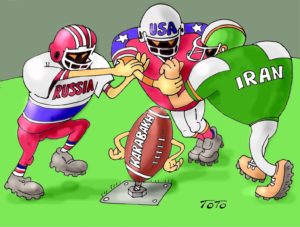Once again, the Karabagh conflict prominently appears on the political radar of the Caucasus, raising for some the possibility of a breakthrough settlement and for others, the specter of a renewed war.
The situation is so fluid that the issue can veer in any direction unexpectedly.
“This is a war and I would ask you to use the term ‘war’ and not to use the phrase ‘ceasefire violations,’ because, in effect, we don’t have a ceasefire any more,” announced Armenia’s Defense Ministry Spokesman Artsrun Hovhannisyan to reporters in December.
That was right after the presidents of Armenia and Azerbaijan met once again in Bern, Switzerland, to spin their wheels. Someone close to Azerbaijan’s ruling circle characterized the meeting as a routine formality.
And indeed, the intensifying border hostility looks like anything but a ceasefire violation, especially when Azerbaijan has moved the battleground from its border with Karabagh to the sovereign territory of Armenia proper, leading many citizens to wonder what good is Armenia’s strategic alliance with Russia, if the treaty does not cover the entire territory of Armenia.










